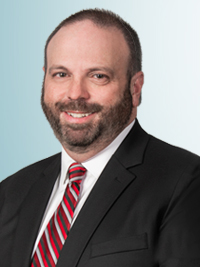Our clients are often shocked when they hear that a partner in our Franchise Practice, Charles Dean Smith, not only advises on taxes and accounting for franchise clients, but that he’s a franchise owner himself.
So who better to give advice about taking the first step?
In this article, readers will find practical guidance for those thinking about taking the first step toward owning a franchise.
What It’s Like to Be a Small Business Owner
Owning a franchise requires wearing many hats. Owners need to understand various tax and financial planning matters.
As we work with small business owners, we watch them progress throughout the entire life cycle of the business. It’s exciting to face and solve challenges that change from day to day — from how to make payroll in the early years to investing extra cash for retirement and expanding locations later on.
“It’s really great for people who want to take that leap and open up their own business or that’s been their dream. And that was always my dream because I come from a family of entrepreneurs, self-employed individuals who started their own businesses. So that is in my blood and I always wanted to do that.”
The One Thing Aspiring Franchise Owners Need to Know
The main suggestion we give new franchisees is this:
Before making the leap, sit down and honestly do a realistic budget for at least two years. Ask yourself how you will cover your personal living expenses? Especially if you’re moving from a traditional W-2 role, employee role, to being self-employed. Project out what you would need to live on in case the business does not generate cash flow in those first years, which is the norm.
In the first year, new franchise owners typically struggle with some type of cash flow issue. You may not be able to pay yourself a salary. Or, if you do, you may have to loan it right back to the business. That’s not a bad thing; it’s actually the norm. But it’s critical to have a backup plan to cover your living expenses.
“What I tell a lot of people, especially if they’re married, is have at least one spouse continue working until the business is established. I know a lot of people want both husband and wife doing the business together, but if you can stagger it and have one spouse continue to work — especially if they’re getting health insurance and employee benefits — have them continue to work until the cash flow is sufficient to bring them into the business.”
Spouses Working Together in the Franchise
When considering getting into the franchise world, stress on relationships is something to think about. We see a lot of husband and wife teams. Or father-son, father-daughter, mother-daughter.
“First, there are some people that just can’t work together. Let’s face it. And there are some people that don’t want to work in the franchise world. I advise clients not to have everyone in the family all-in on the business right away because that’s a lot of mouths to feed. You want to spread those start dates out so that you’re not covering the entire family’s salaries the first year.”
How Much Accounting Do Franchise Owners Need to Understand?
Often, we see franchise owners putting accounting on the back burner. Their focus tends to be on staffing, construction, marketing, etc. And that’s not necessarily a bad thing.
But finances are a major part of operating a franchise. Timely and accurate financials are very important for a business, especially a new business.
It’s essential to stay on top of the numbers, analyze them, and manage your cash flow.
Franchises have operating expenses that can rise due to cost changes. If you’re not able to see that monthly in your financials, you won’t adjust your pricing appropriately and things become out of whack quickly.
“In my experience, the cash flow statement is the most important. Cash flow really tells you where the cash is going so you can identify how much is going to debt and how much is going to items you can control. It’s more useful than an income statement and a powerful tool for evaluating your business. But the problem is a lot of people don’t know how to prepare one. “
Do Franchise Owners Need to Hire an Accountant?
When you own your own business, there are some areas you simply must invest in. And good financial planning, advice, tax planning — this is the one area where you see a significant return on your investment.
Unfortunately, we see a lot of new franchise owners try to go the cheapest route possible — or they bury their heads in the sand hoping things will magically work out.
Some people think that the franchisor will come in and save the day if a financial problem occurs. That’s not exactly true. There are certain things the franchisor will do, but many decisions are up to you as the business owner.
Other people are scared of accounting or journaling trees and the terminology. That’s why our team talks in layman’s terms. We try not to overload them and instead, keep things as simple as possible so they can understand and make practical improvements.
“Accounting is an expense that some people try to go cheap on. I get it. But timely financials, expert tax planning advice, these things save you more than what you spend for that advice. And I say that as a business owner, not as a CPA, not as a CPA partner. But I do see it all the time with clients that come to me and they’re behind on their financials or, you know, they only talk to their CPA once a year. I look at their pricing and their margins and they’re not profitable because they’re so behind on making financial adjustments.”
Learn More
With many years of experience serving franchises in various industries, the Franchise Team at PBMares offers comprehensive accounting, management, and business advisory services that can change the trajectory for your business.





